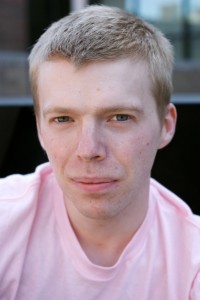Thornton alum enhances career with LA orchestra
The classical music world can sometimes seem exclusive, with concerts frequented by the same culture aficionados who have season tickets to the ballet and the opera. It’s equally easy for outsiders to see the music as unrelatable and the performances as stuffy.

Thornton talent · USC alumus and classical composer Andrew Norman has received prestigious music fellowships in Berlin and Rome. – | Photo courtesy of Andrew Norman
But the Los Angeles Chamber Orchestra is making a shift away from the secluded spot classical music holds in American culture by offering intimate performances and profiles of up-and-coming composers.
One of the composers commissioned by LACO is USC’s own Andrew Norman. With bachelor’s and master’s degrees from the Thornton School of Music, Norman possesses an impressive musical resume.
Having loved music since he was a child, Norman claims that he would be nowhere if it weren’t for USC and the opportunities provided him during his time here.
“No one had one particular agenda or style that they wanted students to write in,” Norman recalled. “Thornton doesn’t have a set ideology when it comes to what kind of music should be made or why, which made me feel comfortable enough to push myself and even fail.”
Though Norman appreciates the freedom afforded to Thornton students, he credits most of his wisdom and experience to his professors and mentors.
“I had a spectacular piano professor, Stewart Gordon,” Norman said. “He taught me what it means to interpret a piece of music and the importance of bringing my own voice to such an old medium.”
Though the music that Norman composes is written for instruments and venues that have been around for a few hundred years, his brilliance stems from his ability to give his music a fresh sound.
“Think about Shakespeare, for example,” Norman said. “Actors have been performing his works for hundreds of years, but there is always a new way to read them, new intonations that can inflict a range of new meanings… [The same goes for] Bach. There’s a lot that he [wrote] down — notes, rhythms — but there’s also a lot open to interpretation.”
Though classical music has cultivated a notorious reputation for having complex structures in which many melodic themes are intertwined in one piece, Norman makes it his mission to take this old medium and come up with his own take: He stays vigilantly clear in the way he inflects the music and delivers it to his audience.
Norman’s precise and methodical approach to composing music has not gone unnoticed by the larger musical community. During his mid-20s, Norman was the proud recipient of the Rome Prize, a fellowship that allowed musicians, artists and writers to live and study in the birthplace of Western art and culture. Norman was also fortunate enough to win a similar fellowship in Berlin a few years later.
“These times abroad gave me an interesting perspective on what it means to be a composer today in the United States,” Norman said. “And these experiences continue to influence my music to this day.”
Professors and fellowships weren’t the only factors that had a resounding effect on Norman.
“Thornton is filled with so many students working at such high levels that I was inspired by them as much as I was by the professors,” Norman said. “[And while abroad], I got to meet so many interesting and talented musicians that were doing what I do in their own capacity.”
One of Norman’s oldest friends from USC, Joel Pargman, is currently a violinist at LACO and looks forward to performing original compositions from his USC roommate.
“Andrew’s music is always exciting, original, dramatic and full of story,” Pargman said. “His music resonates with me personally.”
And this personal resonance is one of the reasons why Norman is so thrilled about his future at LACO.
“LACO has a really special group of people that come together here,” Norman said. “Being L.A., a lot of players do studio work playing music scores and the like. But then they come here to LACO to play classical music, and there is such a sense of joy and excitement about playing Mozart and Beethoven.”
This joy is what first drew Norman to music as a child. Realizing the power of the medium and the way certain pieces could get him going, he wanted to be able to create that sensation for other people as well.
Norman’s goal to expand the classical music realm doesn’t stop at compositions; as a part of LACO, he will dive into the Los Angeles community, working with students in various schools. He’ll introduce younger students to the world of composition and what it means to write a piece of music, and will support high school students with the process of writing music.
Along with engaging youth in the community, Norman will continue writing some large works for the chamber orchestra to play — the first was performed in the spring of this year -— as well as serving as a resource for the orchestra in several areas.
“This is such an exciting time in music composition because barriers are coming down. What made classical seem intimidating is no longer part of the game,” Norman said. “For me, I listen to all different types of music and it all gets worked into my compositions. It’s so cool when I can take that aesthetic and write orchestra music with it.”
